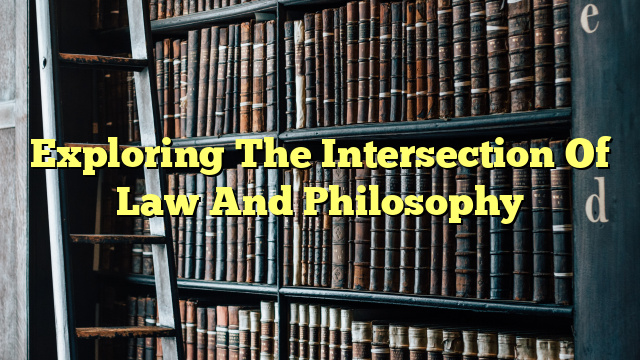What is the Relationship Between Philosophy and Law?
The relationship between philosophy and law is complex and multi-faceted. On the one hand, philosophy can be seen as a foundation upon which law is based – it provides the principles and values which are then interpreted and applied in different legal contexts. On the other hand, law can be seen as a manifestation of philosophical principles, as it provides a framework for ordering social behavior and resolving conflicts. In both cases, law and philosophy are intertwined, and their relationship is essential for understanding the law.
What is the Study of Law and Philosophy?
The study of law and philosophy is an interdisciplinary field that seeks to explore the connections between law and philosophy and the ways in which they interact and inform one another. The field looks at the philosophical foundations of different legal systems, the ways in which law is interpreted and applied in different contexts, and the implications of legal decisions for society. It also looks at the implications of philosophical theories for legal systems, and how law can be used to implement philosophical ideals.
What are the 4 Types of Law Philosophy?
The four types of law philosophy are natural law, positive law, analytical law, and critical legal studies. Natural law is based on universal principles of morality, and is focused on discovering the underlying principles of justice that should govern all legal systems. Positive law is the law that is actually in force, and is based on a set of rules established by a governing body. Analytical law is focused on understanding the reasons for legal decisions, and is based on the logical interpretation of legal principles. Critical legal studies is a form of legal theory that seeks to challenge and deconstruct traditional legal systems.
How Does Philosophy Work in Law?
Philosophy works in law in a variety of ways. On the one hand, it provides the underlying principles and values that inform and guide legal decisions. On the other hand, it can also be used to provide a framework for interpreting and applying existing law, and for understanding the implications of legal decisions. Furthermore, philosophy can be used to challenge and critique existing legal systems, and to suggest alternatives for creating more just and equitable laws.

